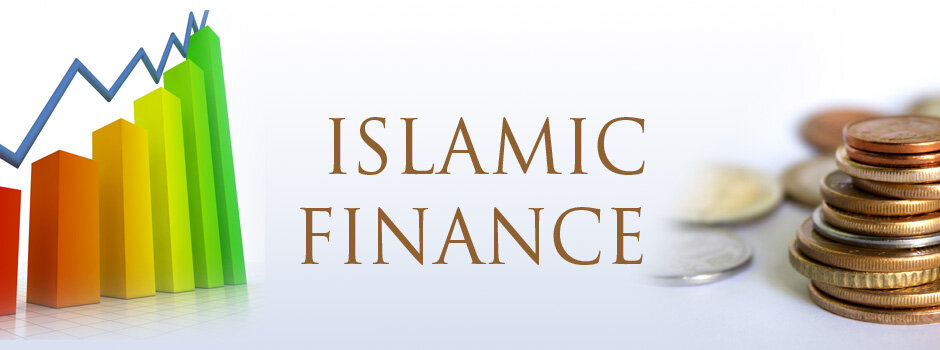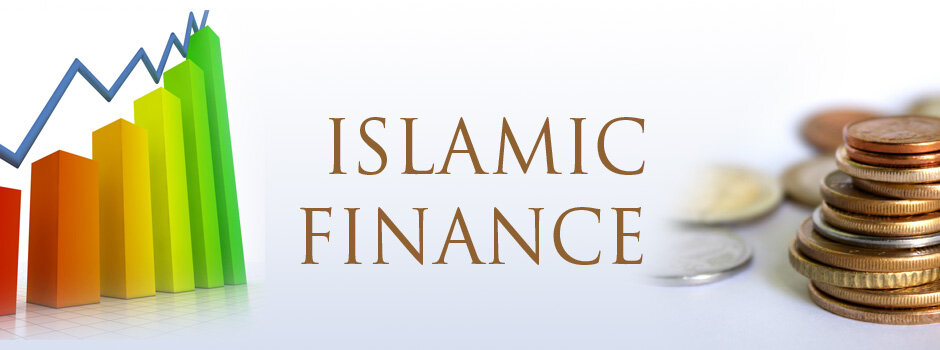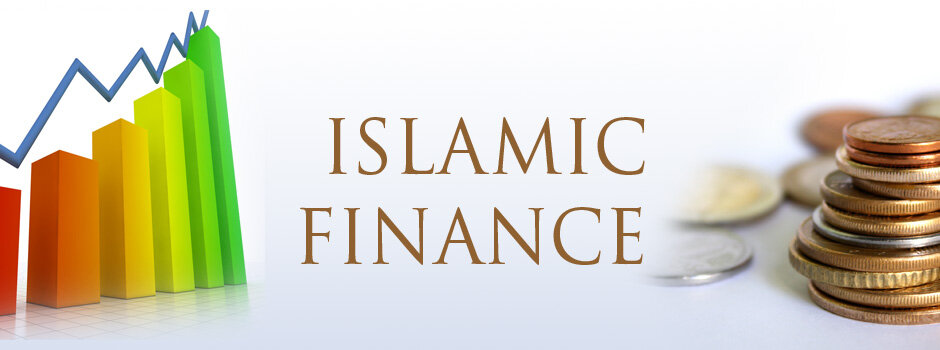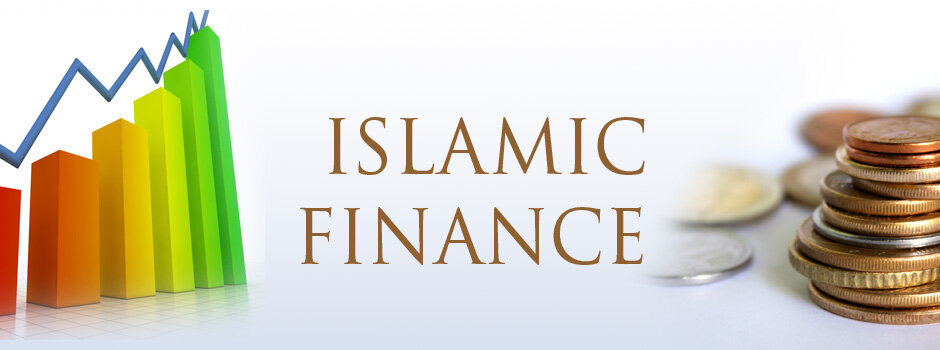The Western capitalist worldview dominates modern financial and economic relationships, prioritizing wealth accumulation and consumerism. Central to this ideology is the relentless pursuit of the exaltation of individual prosperity. Interestingly, this viewpoint tends to exert influence within Muslim communities, shaping their financial and economic conduct in a similar manner.
The Islamic worldview shares common ground with the capitalist one on economic matters like private property and free market operations. However, Islam takes a different stance towards different aspects of financial and economic conduct, spanning income generation, wealth acquisition, consumption patterns, and the pursuit of individual prosperity, central to which is the value-centered approach based on Islamic worldview. Islam teaches that this world is temporary and that beyond this materialistic world lies another one - the afterlife. True success lies in achieving heaven, where one enjoys the fruits of their deeds for eternity. To achieve success, humans must submit to the will and laws of the Creator by following the right path - implementing the guidelines revealed in the Quran. Allah has determined what is permissible and what is prohibited, and people will be held accountable for all their deeds. Based on their actions, whether good or evil, people will be either rewarded or punished. Islam calls upon Muslims to act as tenants in this world, recognizing that their ultimate residence is in the hereafter and one should align their worldly pursuits with objectives of the afterlife. With regard to this world, Muslims are likened to travelers on the journey, acquiring only what they need for a successful passage of the test.
Guided by the Quran and Sunnah, Islamic teachings offer a guideline for navigating one’s deeds in financial and economic endeavors as well. These guidelines are essential for every Muslim to consider in their financial and economic activities:
1. Ownership and accountability: In Western capitalism, individuals have the right to own private property, and the idea of individual prosperity encourages the accumulation of wealth. Wealth is seen as a reward for individual effort and innovation with no idea of accountability over it before someone except legality. In contrast, Islam emphasizes that the ultimate owner of wealth and resources on Earth and in the heavens is Allah. While individuals are permitted to own property and accumulate wealth through personal effort, this principle underscores the concept of stewardship (or trusteeship) as they are considered stewards of these resources and are expected to use them responsibly. Within the framework of accountability in the afterlife for one's deeds, individuals will be held responsible for both the way they earned their wealth and spent it. In the Quran Allah says:
“To Allah belongs all that is in the heavens and all that is on the earth…” - (2:284).
“But seek, through that which Allah has given you, the home of the Hereafter; and [yet], do not forget your share of the world. And do good as Allah has done good to you. And desire not corruption in the land. Indeed, Allah does not like corrupters.”- (28:77).
And the hadith:
“Abu Barzah, may Allah be pleased with him, reported: Messenger of Allah(ﷺ) said, "Man's feet will not move on the Day of Resurrection before he is asked about his life, how did he consume it, his knowledge, what did he do with it, his wealth, how did he earn it and how did he dispose of it, and about his body, how did he wear it out." - (At-Tirmidhi, no. 407).
2. Income generation and wealth accumulation: The Western capitalist worldview places primary emphasis on individual prosperity, regarding wealth accumulation as a central pathway to achieving it. Individuals are incentivized to pursue wealth through legally permissible means, with varying degrees of attention to moral and ethical considerations. Additionally, these considerations may vary across cultures and nations.
In contrast, Islam teaches the importance of considering well-being within the context of the concepts of 'rizq' (sustenance or provision) and 'barakah' (divine blessing). Islam emphasizes that the sustenance (rizq) of every individual is predetermined by Allah, and He is the ultimate provider. Islam calls upon Muslims to be proactive in improving their well-being through working hard, seeking knowledge, and utilizing personal abilities and resources to earn income and accumulate wealth, while acknowledging that ultimate success and sustenance come from Allah.
One aspect of Islam teaching is that the enjoyment of a full and prosperous life can come with the divine blessing (barakah) of Allah, manifested in various aspects of life, including wealth and resources, time, and the results of work and activities. This blessing can be achieved through seeking closeness to Allah and His pleasure through acts of worship and certain behaviors. Moreover, earning income and accumulating wealth should be done only in the lawful manner prescribed by Allah.
A key aspect of Islamic teaching concerning wealth is that it is created for human beings, and human beings are not created for wealth; people are travelers in this world.
3. Consumer behavior: Western capitalist consumer behavior is often characterized by consumption-driven lifestyles, reliance on credit, and a culture of materialism. In contrast, Islam encourages the principle of moderation in consumption and avoidance of debt.
Extravagance and wastage in spending and consumption (Israf): Islam does not discourage an individual from enjoying their wealth and leading a comfortable life. At the same time, Islam prohibits extravagance and wastage in spending and consumption, and the concept of extravagance (israf) is central to it. Though Islamic scholars differentiate between extravagance and wastefulness, linguistically, in Arabic, ‘israf’ means using wealth in an unbeneficial way and in a way that will not be rewarded or misplacing the rights. It refers to the usage of something excessively or more than necessary. While spending on good and beneficial matters is rewarded by Allah, obedience in such activities is encouraged, as long as it doesn’t affect or harm the well-being of the individual who is spending.
In the Quran Allah says:
“And [they are] those who, when they spend, do so not excessively or sparingly but are ever, between that, [justly] moderate.” - (25:67).
“Indeed, the wasteful are brothers of the devils, and ever has Satan been to his Lord ungrateful.” - (17:27).
There are several types of extravagance and wastefulness:
- Wasteful spending refers to spending that is prohibited and can distract people from remembering or obeying Allah. Prohibited spending refers to items such as alcohol and gambling, which are prohibited by Sharia. The second type refers to spending on something lawful, but extravagance in doing so can lead to sin by distracting from fulfilling religious obligations. For example, while sports are encouraged to maintain one’s health, if indulging in them leads to extravagance that causes neglect of timely performance of prayers or paying zakat, then it is considered a sin.
- Spending to show off. Show off (riya) is prohibited in Islam. Show off refers to actions that are performed to boast. Though it is related to one’s intention, it can be defined as spending on something that is not a necessity or isn’t used to ease one’s life.
- Wasteful spending, or extravagance, refers to spending excessively or more than necessary on permissible matters. Unreasonable spending is considered wasteful, as excess items may spoil and be neglected, while others in need could benefit from them if they were given away. Identifying and measuring this type of spending can be challenging. One example could be ordering too much food in a cafe, where much of it is left uneaten.
Debt in Islam: Western capitalist systems often rely on interest-based debt to facilitate lending for consumption and investments. In contrast, Islam strictly prohibits the charging or paying of interest (riba). Instead, from an investment perspective, Islam promotes profit-sharing, profit and loss sharing arrangements, and asset-backed financing.
From an Islamic perspective, debt is incurred through two means: when an asset or commodity is sold on a deferred payment basis, and when someone seeks funds through a financial loan such as an interest-free loan (Qard Hasan) or a halal financial plan. In Islam, debt is considered an obligation. In Arabic, the equivalent of debt is 'dayn', which linguistically means submission and humiliation. Islam takes the matter of debt very seriously and generally discourages it except under conditions where it becomes a necessity, urging individuals to avoid it as much as possible. Individuals engaging in debt-based transactions should ensure they have the potential ability or capability to repay in accordance with the terms and conditions of the debt arrangement. Contracting a debt and not repaying it, or doing so without the intention to repay, is considered a grave sin. As reported in many hadiths, the Prophet Muhammad, peace be upon him, used to make supplications (duas) seeking refuge from heavy debt. On another occasion, he refrained from offering the funeral prayer for one who had died owing a debt of two dinars, and on many occasions, he warned about the punishment for not repaying the debt
In the Quran Allah says:
“...That is because they say, "Trade is [just] like interest." But Allah has permitted trade and has forbidden interest…” - (2:275).
“O you who have believed, when you contract a debt for a specified term, write it down...” - (2:282).
In the hadith:
“Once, while we were sitting in the company of Prophet, a dead man was brought. The Prophet (ﷺ) was requested to lead the funeral prayer for the deceased. He said, "Is he in debt?" The people replied in the negative. He said, "Has he left any wealth?" They said, "No." So, he led his funeral prayer. Another dead man was brought and the people said, "O Allah's Messenger (ﷺ)! Lead his funeral prayer." The Prophet (ﷺ) said, "Is he in debt?" They said, "Yes." He said, "Has he left any wealth?" They said, ''Three Dinars." So, he led the prayer. Then a third dead man was brought and the people said (to the Prophet (ﷺ) ), Please lead his funeral prayer." He said, "Has he left any wealth?" They said, "No." He asked, "Is he in debt?" They said, ("Yes! He has to pay) three Diners.', He (refused to pray and) said, "Then pray for your (dead) companion." Abu Qatada said, "O Allah's Messenger (ﷺ)! Lead his funeral prayer, and I will pay his debt." So, he led the prayer.” -
(Al Bukhari, no. 2289).
4. Saving in Islam. Islam emphasizes the importance of saving for future uncertainties. This notion can be found in the Quran and Hadith, as well as in the application of Zakat payment due on wealth reaching the zakat-liable amount (nisab). This balanced approach of saving and paying Zakat ensures financial stability while preventing excessive accumulation of wealth.
In the Quran Allah says:
[(Yusuf (Joseph)] said: “For seven consecutive years, you shall sow as usual and that (the harvest) which you reap you shall leave it in the ears, (all) except a little of it which you may eat.”Then will come after that, seven hard (years), which will devour what you have laid by in advance for them, (all) except a little of that which you have guarded (stored). “Then thereafter will come a year in which people will have abundant rain and in which they will press (wine and oil).” - (12: 47-49).
In the hadith:
“Amir b. Sa'd reported on the authority of his father (Sa'd b. Abi Waqqas): Allah's Messenger ﷺ visited me in my illness which brought me near death in the year of Hajjat-ul-Wada' (Farewell Pilgrimage). I said: Allah's Messenger, you can well see the pain with which I am afflicted and I am a man possessing wealth, and there is none to inherit me except only one daughter. Should I give two-thirds of my property as Sadaqa? He said: #I said: Should I give half (of my property) as Sadaqa? He said: #He (further) said: Give one-third (in charity) and that is quite enough. To leave your heirs rich is better than to leave them poor, begging from people; that you would never incur an expense seeking therewith the pleasure of Allah, but you would be rewarded therefor, even for a morsel of food that you put in the mouth of your wife. I said: Allah's Messenger. would I survive my companions? He (the Holy Prophet) said: If you survive them, then do such a deed by means of which you seek the pleasure of Allah, but you would increase in your status (in religion) and prestige; you may survive so that people would benefit from you, and others would be harmed by you. (The Holy Prophet) further said: Allah, complete for my Companions their migration, and not cause them to turn back upon their heels. Sa'd b. Khaula is, however, unfortunate. Allah's Messenger ﷺ felt grief for him as he had died in Mecca.”-(Muslim, no.1628).
5. Investment preferences and Ethical considerations: In Western capitalism, investment decisions are largely driven by profit maximization and market trends. Investors may prioritize sectors or assets with high returns. While Western capitalism may have regulations and ethical guidelines, due to the precedence of profit maximization, unethical behavior can sometimes be overlooked or even incentivized. In contrast, Islam places a strong emphasis on ethical considerations, prohibiting activities that involve greater uncertainty (gharar), gambling (maysir), exploitation, or harm to society. In terms of investment preferences, there are activities prohibited by Sharia such as alcohol, pork, and speculation.
6. Philanthropy and charitable giving: While philanthropy and charitable giving exist in Western capitalist societies, they are more voluntary and varied in nature, with individuals and corporations contributing to a wide range of causes based on personal preferences and social priorities. Western capitalist societies also have social welfare programs, the extent and design of these programs may vary, with some emphasizing individual responsibility and private charity over state intervention.
Islam urges individuals to strive to acquire wealth through righteous means and enjoyment of it without extravagance or wastefulness. At the same time, through alignment of worldly pursuits with objectives of the hereafter, it encourages philanthropy and charitable giving like Zakat payment and giving charity (Sadaqah), donating property and assets for the betterment of society (Waqf), and helping those in need through benevolent loans (Qard). In Islamic societies, these mechanisms play a role in providing assistance to the poor and disadvantaged, and ensure the provision of social welfare and safety nets to assist the well-being of society's most vulnerable members.
Zakat: It is the obligatory annual tax of one fortieth (or 2.5%) on certain types of assets for Muslims who possess zakat-liable amount (nisab). Zakat is one of the five pillars of Islam, and in terms of importance, it stands immediately after the pillar of performing the five daily prayers. The word ‘zakat’ literally means growth in goodness or increase, purifying or making pure. Therefore, the act of giving zakat is purifying one’s wealth to gain the divine blessing (barakah) of Allah, including making it grow in goodness.
In the Quran Allah says:
”And establish prayer and give zakah, and whatever good you put forward for yourselves - you will find it with Allah. Indeed, Allah of what you do, is Seeing.” - (2:110).
Charity (Sadaqah): It is a voluntary act of giving wealth to needy persons for the sake of Allah in order to attain His pleasure. In turn, Allah promises to reward the person for their voluntary donations, both in this life and the hereafter. Charity (Sadaqah) not only enables people to gain reward and answer for supplications, but it also serves as a shield which protects a person from calamities, and increases wealth.
In the Quran Allah says:
“Not upon you, [O Muhammad], is [responsibility for] their guidance, but Allah guides whom He wills. And whatever good you [believers] spend is for yourselves, and you do not spend except seeking the countenance of Allah. And whatever you spend of good - it will be fully repaid to you, and you will not be wronged.” - (2:272).
“Believe in Allah and His Messenger and spend out of that in which He has made you successors. For those who have believed among you and spent, there will be a great reward.” - (57:07).
In the hadith:
Reported from Abu Hurairah, may Allah be pleased with him: “Allah's Messenger (ﷺ) said, "Allah said, 'O son of Adam! Spend, and I shall spend on you." - (Al Bukhari, no.5352)
Reported from Abu Hurairah, may Allah be pleased with him:"Charity does not decrease wealth, no one forgives another except that Allah increases his honor, and no one humbles himself for the sake of Allah except that Allah raises his status." - (Muslim, no.2588)
Reported from Abu Hurairah, may Allah be pleased with him: “Messenger of Allah (ﷺ) said, "Seven people Allah will give them His Shade on the Day when there would be no shade but the Shade of His Throne (i.e., on the Day of Resurrection): And they are: a just ruler; a youth who grew up with the worship of Allah; a person whose heart is attached to the mosques, two men who love and meet each other and depart from each other for the sake of Allah; a man whom an extremely beautiful woman seduces (for illicit relation), but he (rejects this offer and) says: 'I fear Allah'; a man who gives in charity and conceals it (to such an extent) that the left hand does not know what the right has given; and a man who remembers Allah in solitude and his eyes become tearful." - (Al-Bukhari and Muslim, Riyad as-Salihin 449).
The Western capitalist and Islamic worldviews share commonalities regarding private property ownership and free contracts. However, while Western capitalism is wealth-centric, placing individual prosperity at its core, the Islamic worldview takes a value-centric approach to personal finance management. Islam aligns one's worldly life goals with the objectives of the hereafter, defining a framework for responsible attitudes toward income generation, wealth accumulation, spending, and consumption. Moreover, it prioritizes not only the interests of the poor and disadvantaged in society and future generations but also promotes broader goals through its value-centric approach, and incorporates modern trends such as responsible investments, ESG policies, and green financing. In contrast, in the Western capitalist system, such practices are often discretionary.










